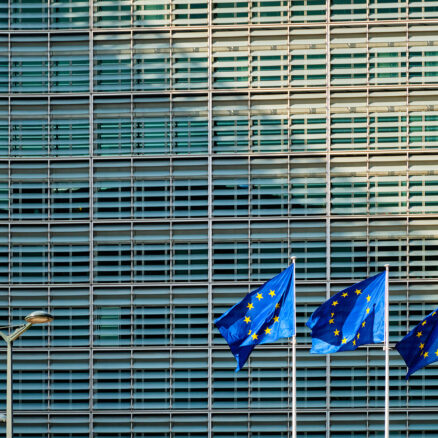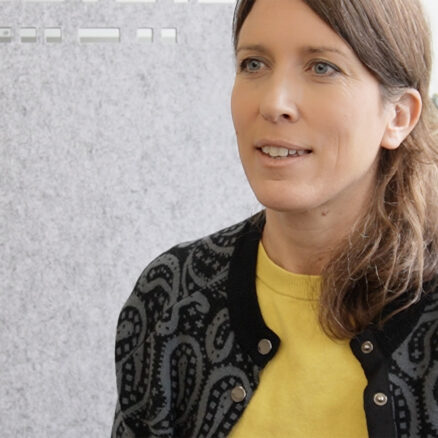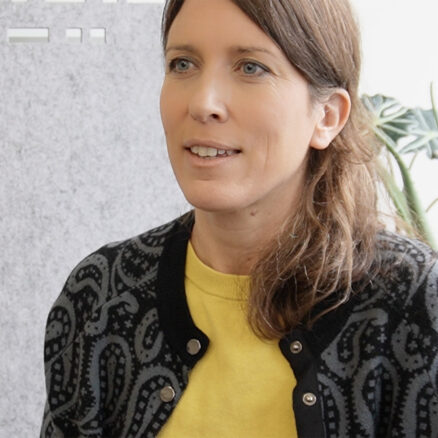“The scientific evidence is unequivocal: climate change is a threat to human well-being and the health of the planet. Any further delay in concerted global action will miss the brief, rapidly closing window to secure a livable future.”
This week kicked off with the release of the latest report from the Intergovernmental Panel on Climate Change (IPCC), Working Group II’s Climate Change 2022: Impacts, Adaptation and Vulnerability. It’s the second part of the latest assessment report on the state of the planet, which draws on the work of thousands of scientists and has taken over seven years to put together. And more than any of its predecessors, the new report recognizes the interdependence of climate, biodiversity and human societies.
Tellingly, it’s also the last report of this depth the IPCC will produce before 2030, the benchmark year by which we must have at least halved global emissions if we are to avoid the most devastating impacts of climate change.
The report delivers some hard-hitting punches in what has been termed the “bleakest warning” of the consequences of failing to curb emissions and the continued rise of global temperatures. We’re already living with many of the changes. The litany of extreme weather events will continue, with no region unaffected, and half the world’s population left ‘highly vulnerable’ to the impacts of climate change. Food and water shortages will increase, biodiversity will take a huge hit, and sea levels will keep rising, making oceans out of what were once islands and coastal areas.
But there’s still a message of hope. The report concludes that there’s an opportunity, albeit a brief one, to limit global temperature rise to 1.5 degrees and avoid the most severe impacts of climate change.
How can businesses interpret and respond to the findings in the report? Most importantly and without delay, companies must actively minimize their contribution to climate change through rapid emissions reductions. Failing to act is simply not an option. Companies need to do all they can to shift to operating within the limits of the planet, while simultaneously looking to risk mitigation and adaptation strategies to prepare for the changes already unfolding. Adaptation, however, cannot be used as an excuse to delay reduction.
What can businesses do with the latest science?
The time for piecemeal change and tinkering around the edges has come and gone; targets that have been set now need to be met. There is much that businesses can – and must – do to reduce the threats facing our planet and, in turn, the risks they face themselves.
+ Work with nature, not against it. It’s impossible to look at the climate emergency without considering the biodiversity crisis at the same time. Safeguarding biodiversity and ecosystems is fundamental to climate resilience. But while most companies know about carbon, far fewer understand the risks that biodiversity loss poses to their businesses. This is a missed opportunity, both in terms of reducing environmental impacts, as well as corporate adaptation.
Businesses need to take another look at their relationships with nature. And not just those in industries with a direct relationship to the land, such as food and agriculture. Companies that have avoided action on much-needed changes from both a climate and biodiversity standpoint will also need to reassess. It is estimated that at least 55% of global GDP relies on ecosystem services. The report makes it clear that business as usual will simply accelerate the destruction of ecosystems and with them their ability to store carbon and regulate temperatures.
+ Know your risks. Climate change and the loss of services provided to society by biodiversity are putting businesses at risk — especially those relying on forest, land and agriculture. Companies should prepare for mandatory climate and environmental risk disclosure to become the new normal. Climate disclosures are already mandatory or slated in countries such as New Zealand, the UK and Switzerland. Based on recent actions of the SEC, they’re anticipated to become mandatory in the US, too. Even where climate risk reporting is not yet mandatory, there’s already considerable stakeholder pressure to make the change; witness recent events at Blackrock.
But it shouldn’t just be a knee-jerk reaction or exercise in compliance. By following the science now, companies have the opportunity to better understand the risks they face, account for it in their strategies and build resilience to future-proof their businesses. The Task Force on Climate-related Financial Disclosures (TCFD) and the Taskforce on Nature-related Financial Disclosures (TNFD) are already making this happen, offering sustainability professionals the tools they need to explore the effects of climate change and nature loss, and develop plans to help their companies adapt.
+ Adopt ambitious science-based targets. Companies working with the Science Based Targets initiative (SBTi) have demonstrated that emissions reductions are both achievable and good for business, boosting brand reputation, increasing investor confidence and making businesses better prepared for evolving regulation. But companies shouldn’t stop at climate. The Science Based Targets Network (SBTN) can now guide companies on target-setting for other environmental areas (land and water use, ecosystem integrity). Such a holistic approach is critical to avoid trade-offs.
+ Dig deep into your supply chain. Few companies understand how climate change and biodiversity loss are going to impact their suppliers. The IPCC report suggests agriculture is in particular danger. Many food and beverage companies are already seeing the effects of climate change: extreme weather events, crop disease and other stressors are disrupting their supply chain. Businesses need to know where they’re sourcing from and which regions are involved in order to accurately calculate their impact, but also to understand the risks they face.
Rather than doubling down on their reliance on agricultural commodities (especially those in high risk regions or requiring specific climate conditions), companies need to kickstart the transformation of their business model or strategy for increased resilience. How can businesses ensure a thriving future given the physical and transition risks facing them? The IPCC report is likely to accelerate the pressure to respond to this question, as consumers become more informed and the body of scientific evidence grows stronger.
At this critical crossroads, acting swiftly and decisively is imperative. The longer companies wait to make changes, the harder it will be to correct course as the window grows increasingly narrow. There’s no easy way out and by waiting for others to take the lead, businesses only put themselves and the planet at further risk.




